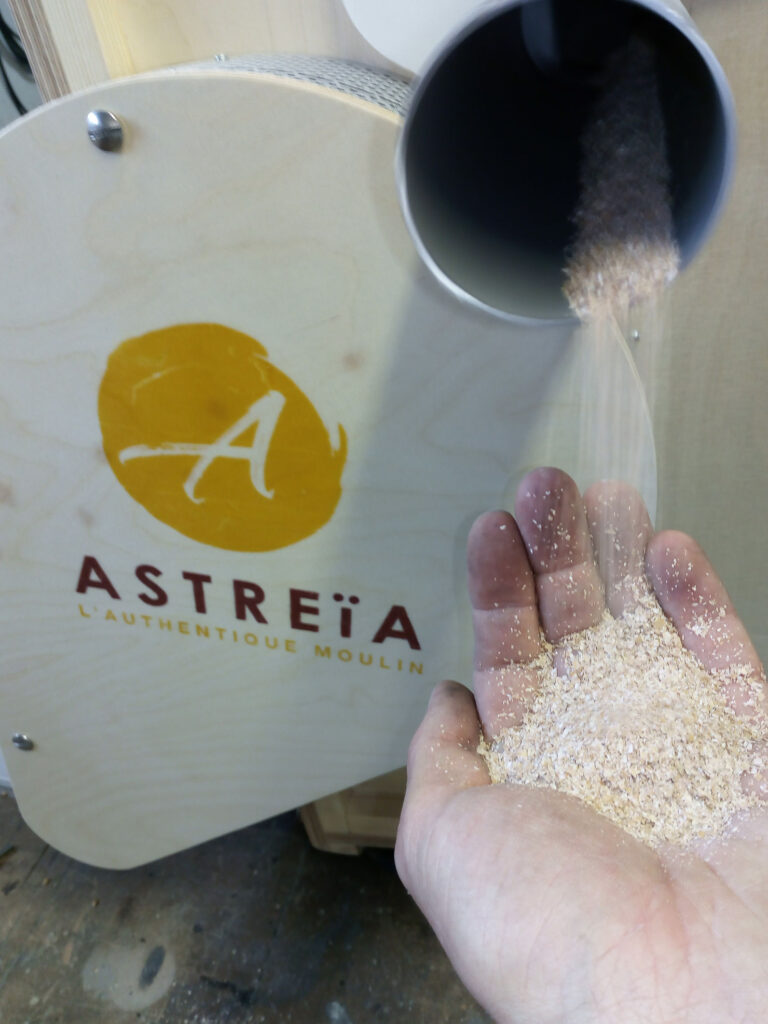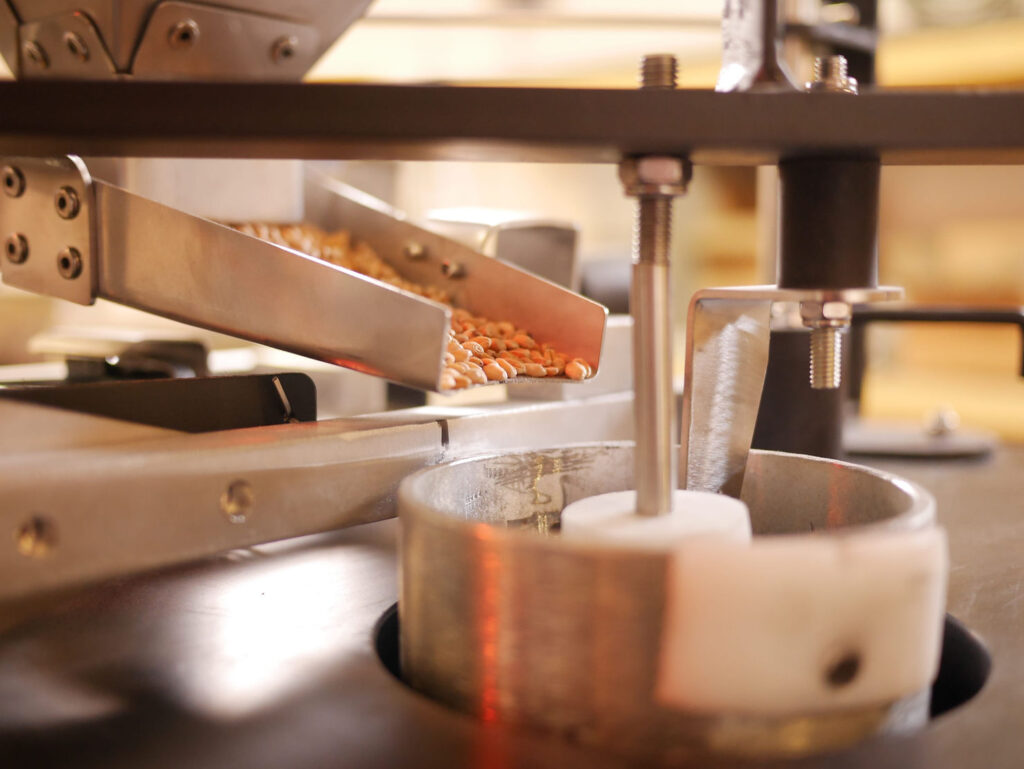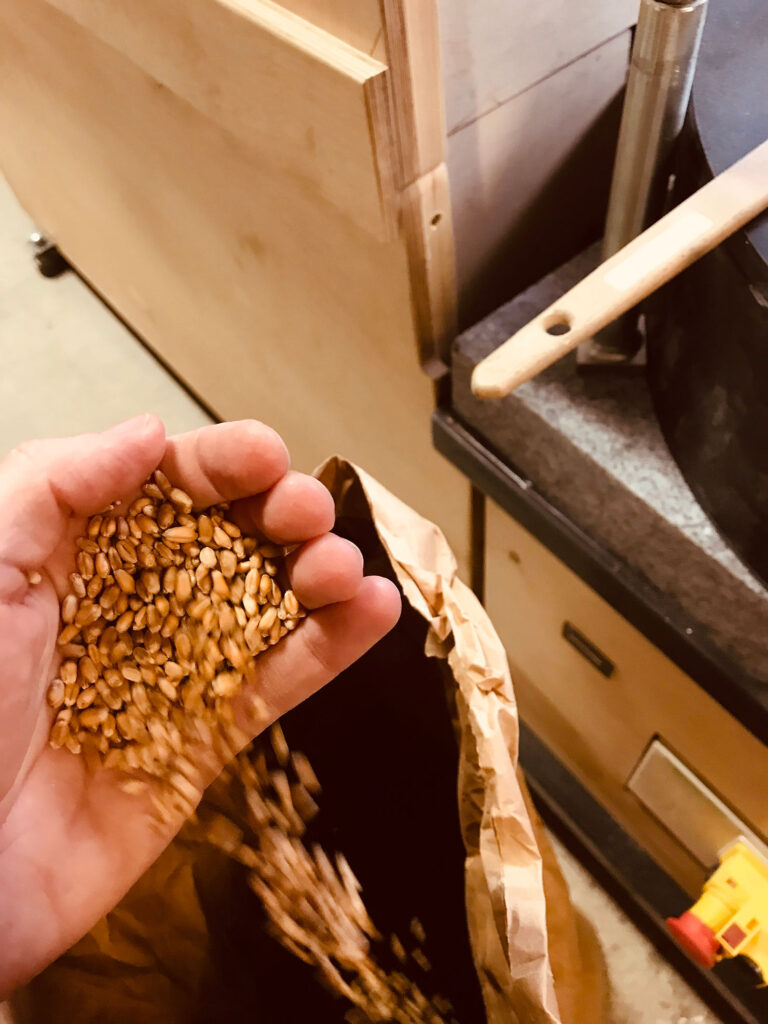Flour milling is an art that requires great expertise. Choosing the right flour for each type of bread, pastry, pasta or biscuit is a well-kept secret for millers, who are constantly expanding their knowledge of cereals and milling. How do they produce their flour? Why is the milling sector in a bad way? What strategies are millers putting in place to win back the hearts of consumers in search of quality? Le monde de la meunerie takes you behind the scenes of bread, so dear to the hearts of the French!

An essential and constantly evolving profession
Over the years, the world of flour milling has evolved enormously, constantly adapting to the world in which it finds itself. Today, as in many other sectors, technology plays an important role in this world, where productivity is increasingly at the heart of operations. New technologies for transforming cereals into flour are constantly presenting millers with new challenges, which can sometimes be difficult to adapt to.
But if there’s one thing that hasn’t changed, it’s the know-how, meticulousness and craftsmanship of millers, who are absolutely essential to running mills and producing good bread. Because yes, to produce truly high-quality flour, even the most modern mills need the expert knowledge of millers!
And even in France, where bread is king, the milling industry is going through a difficult period: falling bread sales and competition from other flour producers around the world are shaking up the sector, which has to find new strategies to survive!
The new strategy: making the most of cereals
To meet these new challenges, millers have no choice but to review their strategy. If they are to win new customers and regain their place in the hearts of the French, the time has come to focus on health.

More fibre!
To offer more nutritious breads, we need to say goodbye to the traditional white bread recipe. White flour is an oxidised flour, devoid of nutritional qualities. Vitamins, proteins, fibre, essential amino acids and minerals are all missing from white flour, which is no longer to the taste of the French.
More types of cereal, and organic!
Older varieties offer many health benefits for consumers. Although they are still few and far between, farmers and artisan bakers are gradually reviving the cultivation of these varieties, chosen for their nutritional benefits and taste. Unmanipulated and grown according to the rules of organic farming, these ancient cereals are winning over the hearts of buyers who want to look after their health while enjoying themselves. Buckwheat, spelt, petit épeautre and millet offer a whole new range of tastes to tantalise the taste buds!
Selecting the right mills
But to get the best out of these cereals, you need the right mill! Unfortunately, traditional stone mills and cylinder mills, which are widely used in the milling world, are not suitable for producing ‘healthy’ flour. Their high rotation speed oxidises the grain, which loses all its nutrients. The idea is to find a mill that :
- Respects the grain without oxidising it
- Provides an attractive yield
- Produces quality flour with an authentic taste

So : Who better than a cereal grower to choose the raw material?
Cereal producers create added value
Constraints are changing, and cereal growers are looking to find added value, to work differently, and to change their working practices in order to survive. The realisation that quality processing is the key to success is shaking things up.
Little by little, cereal growers are having to review their way of working to move towards quality processing in order to regain their autonomy.
Equip yourself with a simple mill that quickly pays for itself
That’s where the Astrié mill comes into its own! Unlike other mills, it doesn’t crush the grain: it unrolls it. All the parts of the grain are preserved, producing flour that is easily digestible and full of nutrients. Taste is also taken into account, enabling bakers to produce rustic, authentic products that are sure to attract attention!
Don’t worry, we’ll support and train you
Flour milling is a complex business, which means that you need to take on some training if you want to be profitable and relevant in your future choices. That’s why at Astréïa, we train you in flour milling so that you can feel at ease and get the most out of your investment.
Empowering you is our corporate mission.
The milling industry has more than one trick up its sleeve if it is to remain a part of French people’s everyday lives! Well-equipped, millers are now reviewing their strategy: quality flour, with sweet flavours, that’s what’s going to keep the milling industry on our plates. And for that, the sector can count on authentic mills like the Astrié mill! To help you make the right choice, take a look at our guide 😊


